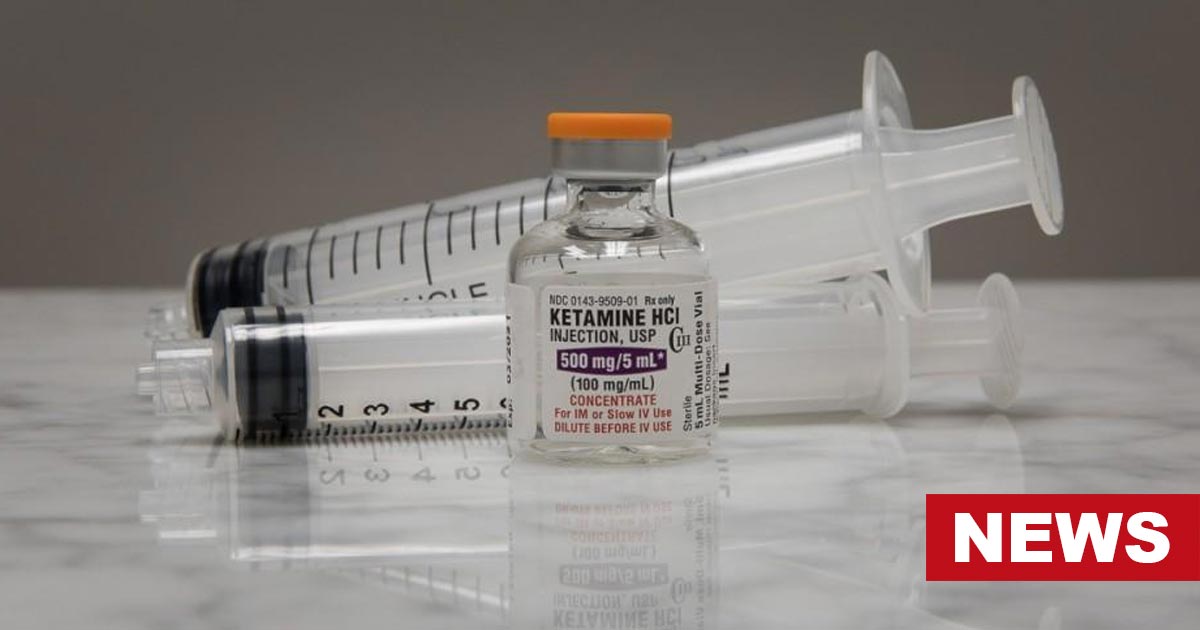Ketamine injections have shown potential as a treatment option for individuals with treatment-resistant depression, according to a recent study. The study, conducted in Australasia, revealed positive long-term health outcomes for patients who availed ketamine injections for depression treatment.
However, the long-term sustainability of these effects remains uncertain, and alternative methods of administering ketamine exist. Moreover, there are various other treatment options available for this particular type of depression.
Ketamine, primarily known as a recreational drug or an anesthetic, has been employed as a potent general anesthetic for over five decades. It is also classified as a psychedelic and a substance of abuse. Psychedelics profoundly impact certain neurotransmitters in the brain, altering perception, mood, and anxiety levels.
Animal studies have demonstrated that ketamine can significantly increase the levels of certain brain chemicals, such as dopamine, by up to 400%. As a result, researchers decided to explore the effects of ketamine on the human brain.
In order to understand the fundamentals of ketamine injections as depression cure, several parallel studies are being conducted on human subjects. Lower doses of ketamine than those used in anesthesia are currently being utilized to assist individuals with treatment-resistant depression, a condition in which patients have tried at least two antidepressants without experiencing any improvement.
However, prescribing ketamine requires strict monitoring and conditions to mitigate potential risks, such as increased suicidal ideation in some individuals. Therefore, thorough assessment and post-treatment monitoring are essential. Additionally, ketamine is also employed in the treatment of other mental health disorders like post-traumatic stress disorder (PTSD).
The aforementioned study investigated the effectiveness of ketamine injections compared to an alternative medication for individuals with treatment-resistant depression. Multiple research centers in Australia and New Zealand collaborated on this trial.
The study randomly assigned 184 participants to different groups, with some receiving ketamine injections and the rest receiving the drug midazolam. Both treatments were administered twice a week for a duration of four weeks. Neither the participants nor the evaluators knew which treatment they received.
At the beginning of the study, all participants had a clinical depression score of at least 20, indicating moderate depression, as assessed by the Montgomery-Asberg Depression Rating Scale.
The researchers then assessed the participants’ depression scores to determine if there was a shift from depression to remission, indicated by a score of less than 11. After four weeks, a significant disparity was observed between the ketamine-treated group (19.6% in remission) and the midazolam group (2%). Another measure of improvement is a halving of the depression score, which exhibited an even more pronounced difference (29% compared to 4%).
However, four weeks after the treatment had concluded, only limited sustained improvement in symptoms was observed in the ketamine group, suggesting that prolonged treatment may be necessary.
The trial explored different methods of delivering ketamine, including injections under the skin and intravenous administration, both of which are not commonly available outside of clinical trials in Australia and New Zealand. Another option, approved for use in both countries, involves a nasal spray containing a different form of ketamine.
Ongoing research aims to understand the effectiveness and comparisons between these delivery methods. Additionally, alternative options for treating treatment-resistant depression include transcranial magnetic stimulation, psilocybin-assisted therapy, various forms of psychotherapy, and lifestyle modifications such as dietary changes, exercise, and mindfulness meditation.



